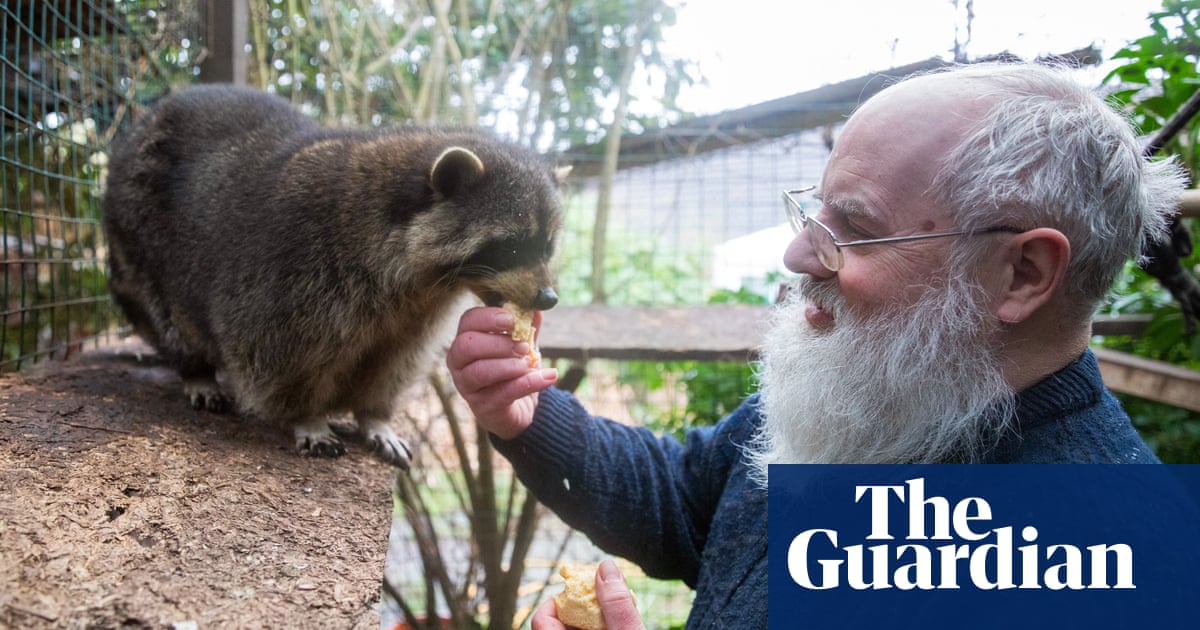
Wednesday lunchtime, and a restaurant on Hove seafront is being treated to a drum’n’ bass remix of Althea & Donna’s 1978 reggae hit Uptown Top Ranking. You could call the volume it’s playing at cutlery-rattling if there were any cutlery in the restaurant to rattle, but there isn’t. Service is suspended, the tables have been pushed to the side, and in the centre of the room Norman Cook is teaching Jess and Amber, two twentysomething women, how to DJ: headphone on one ear only so you can hear the track you’re cueing up while listening to the track that’s currently playing with the other. It’s a task he approaches with huge enthusiasm and an admirable lack of pretension – “They make a kind of ‘wow’ sound,” he shrugs, indicating the filter knobs on the mixer – which is both hugely engaging and, for anyone who’s followed Cook’s career as Fatboy Slim, doesn’t come as much of a surprise.
In the late 90s superstar DJ era, when some of his peers were wont to make eyebrow-raising claims – Paul Oakenfold famously justified his fees by noting that he didn’t merely play records, he also raised his hands, pointed at people in the crowd and smiled, concluding: I am an entertainer – Cook regularly incurred their wrath by declining to take his job as seriously: “A monkey could do what I do,” was one of his more celebrated pronouncements. He doesn’t say anything like that today – “I think,” he smiles, “I was probably being a bit over-modest when I said that stuff, because I’d been a musician [in the Housemartins] and all my musician friends were like, ‘but you’re just playing records’” – but he does suggest to his students that the most important thing to remember about the filter knobs on the mixer is to “make a face when you’re turning them”. “This is mine,” he adds, leaning forward and throwing his head back in apparent ecstasy.
Cook is here as part of a scheme funded by NHS charity Heads On to set up arts events for people with severe mental health problems, that also involves singing workshops, samba classes and sound healing. “I really wanted to make music accessible for all,” says Natalie Rowlands, senior occupational therapist at Sussex Partnership who programmed the events, “to break down the stigmas around mental illness, to build people’s confidence and to have really high-class music workshops in really nice venues. A lot of the people here have been musical in the past, but they’ve gone through so much, they’re coming out of it again, and this gives them an amazing opportunity.”
“Natalie reached out to me, and it sounded interesting,” nods Cook. “It’s sort of life-affirming really, it’s good for me to see the people who’ve never touched a set of decks before going between two tracks and thinking: ‘Whoo!’ Sometimes I can get a bit blase about what I do for a job, and seeing that innocent joy about the way you can manipulate music: it’s exciting, it centres you, it gives you a nice warm feeling. So it’s joyful to see people who’ve been struggling going through that process.”
It seems faintly amazing that Cook has time to get involved. At 58 – and almost a quarter of a century after Fatboy Slim’s commercial peak as a recording artist – his DJ schedule sounds exhausting: Switzerland, Poland, Glastonbury, France, Berlin. Two nights on Brighton Beach, celebrating the 20th anniversary of his Big Beach Boutique event, which legendarily attracted 250,000 people and brought the city to a standstill: in the aftermath, there was so much uproar that Cook subsequently left the country at the suggestion of his then-neighbour Paul McCartney. “It turned out that if you put all the people who are going to little nightclubs in one place, there was a lot of us,” he says. “This one is limited to 7,500 people, they’re in a pen on the beach and there’s no glass allowed onsite. It’s a very boutique Big Beach Boutique.”
It all comes as a vast relief after what he calls an “interesting” lockdown. “My whole job is to make large amounts of people commune and do everything that we weren’t supposed to be doing. For the first couple of weeks, I thought: what do I do?”
Like a lot of DJs, he posted weekly mixes online, “which kind of kept my mental health on track, and I had the summer off that I’d always promised myself. Then in the autumn, my son went off to university, and my daughter was back in school and the walls started to close in a bit.”
Eventually, he took a job serving in the cafe he owns in Hove. “We had a case of Covid, lost two-thirds of our staff and so it was either shut down, or all hands on deck. I worked there for seven months. People would walk along the seafront because that’s all they were allowed to do and it was where they got their coffee at the end of the walk, so it felt like we were the last bastion of community and connection. It was interesting, because I’ve never done an honest job for years. It kept me sane, really. But being back has been joyous.”
In May 2021, he played a mask-free show in Liverpool as part of the government’s Events Research Programme, to see if it was viable to return to mass gatherings. “It was just freaky. There was that thing of “if this cocks up, that could be everybody stuffed for another six months. Our job was to test first and then go all-in and just lick each other’s faces and get properly involved and see what happens, which we were all prepared to do. It felt weird for the first two minutes and then…” He grins. “It was the moment of the clock striking 12 on New Year’s Eve, but all night. Just kissing strangers, hugging strangers because you could. DJing’s a two-way thing, it’s a conversation, if you DJ without an audience, for a livestream or whatever, it’s just a middle-aged man playing records in his kitchen. You forget the euphoria and the connection. Within three minutes, it was ‘why is my heartbeat so fast? Oh, I’m excited, I’m thrilled to be here. I remember this feeling’.”
Covid notwithstanding, Cook’s DJing career just seems to have steamrollered on at an arena-packing level, unaffected by changing times, tastes or indeed his decision to, more or less, stop making music of his own. He told the Guardian in the early 00s that if his records stopped selling, he would “seriously consider packing it all in”, and proved true to his word after 2004’s Palookaville failed to match the platinum success of previous Fatboy Slim albums. His 2009 album under the name Brighton Port Authority – which came complete with umpteen star guests including Iggy Pop and Dizzee Rascal and a complex backstory involving the career of a fake band – attracted few takers. Since then, he’s released only a scant handful of tracks, although one of them, 2013’s Eat Sleep Rave Repeat was a meme-provoking Top 3 hit: variations on its title circulate online to this day. “My enthusiasm for making records kind of waned a bit. But my enthusiasm for DJing has never waned. And because I enjoy it so much, it’s not just arena tours, I play in clubs all year round. It’s like freshers’ week – the new intake are down the front at the clubs. There’s kids going ‘My parents played your records when I was growing up,’ and because I’m playing at their local club down the road, they come and see me out of interest and …” – he laughs – “another soul is mine.”
Still there are definite markers of time’s passing, not least the fact that his children have started DJing. His 10-year-old daughter Nelly performed on a livestream for Camp Bestival during lockdown: there was a fabulous moment when Cook attempted to adjust something on the mixer and was shooed away. His son Woody, meanwhile, is “proper full-time – he did five gigs last week. Got into DJing because his flatmate was a DJ. Two months after he left home: ‘I’m going to be a DJ now.’ All those years when I could have imparted my wisdom and he didn’t want to know! Last summer, he played in Ibiza at Mambo, and I was in the DJ booth with him. As the sun set, he played At the River by Groove Armada and I burst into tears! I can remember when he used to sit in the corner of the DJ booth, couldn’t even see out over the top – it was the only safe place to put him, because there was such mayhem going on all around. Me and Zoe [Ball, his ex-wife] never, ever pushed it on either of them. But he’s grown to love it and choose it completely independently.”
So, it appears, have at least some of the participants in today’s workshop. I talk briefly to Jess, a 34-year-old drummer, who was at music school until her mental health “hit me hard”. She says she came at the suggestion of her support worker – “You can just vanish into nothingness in creativity, but you need to just hang on somehow and put yourself out there again.” She found matching beats quite easy and “genuinely loved it”: “It makes you want to pursue it more and think, ‘I am good enough, I do exist in this world, I’m not just past it.’”
Back in the restaurant, the sound of drum’n’ bass is still ringing out. Another of the participants seems to have completely got the hang of mixing, including the filter knobs. Cook steps back and looks on. “Well, there’s nothing more I can teach you now,” he grins and gives her a high-five.












